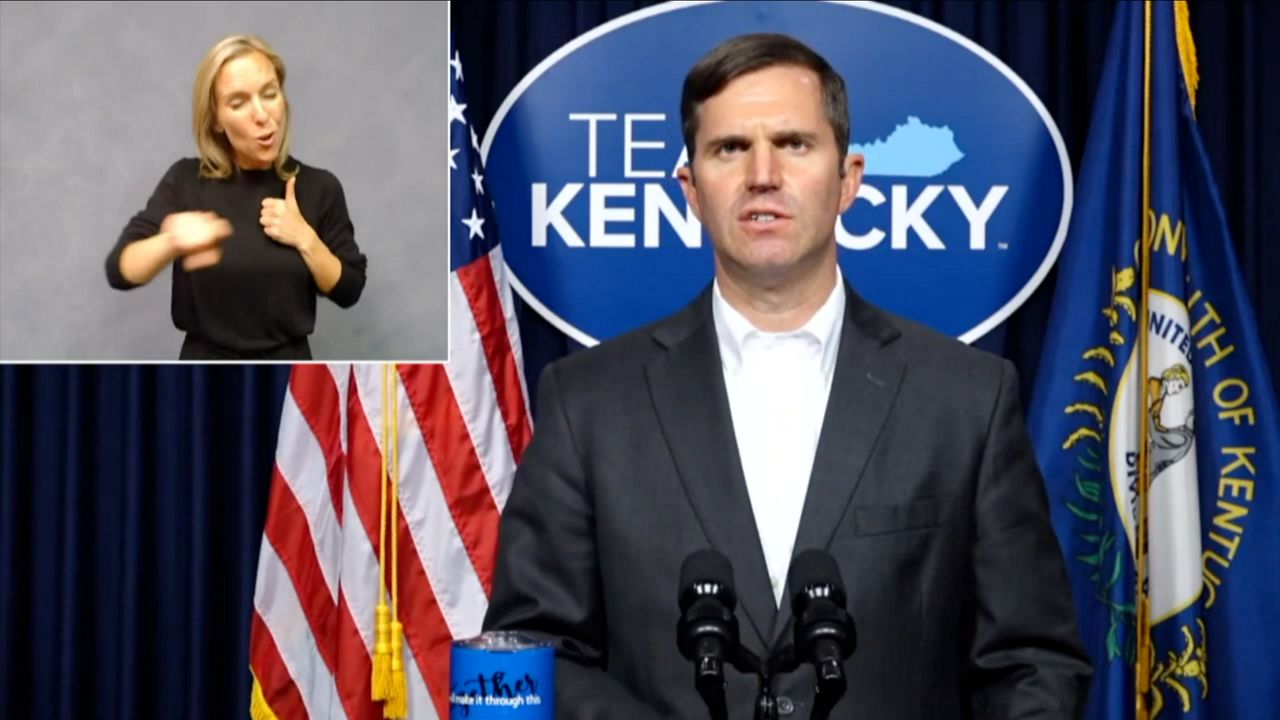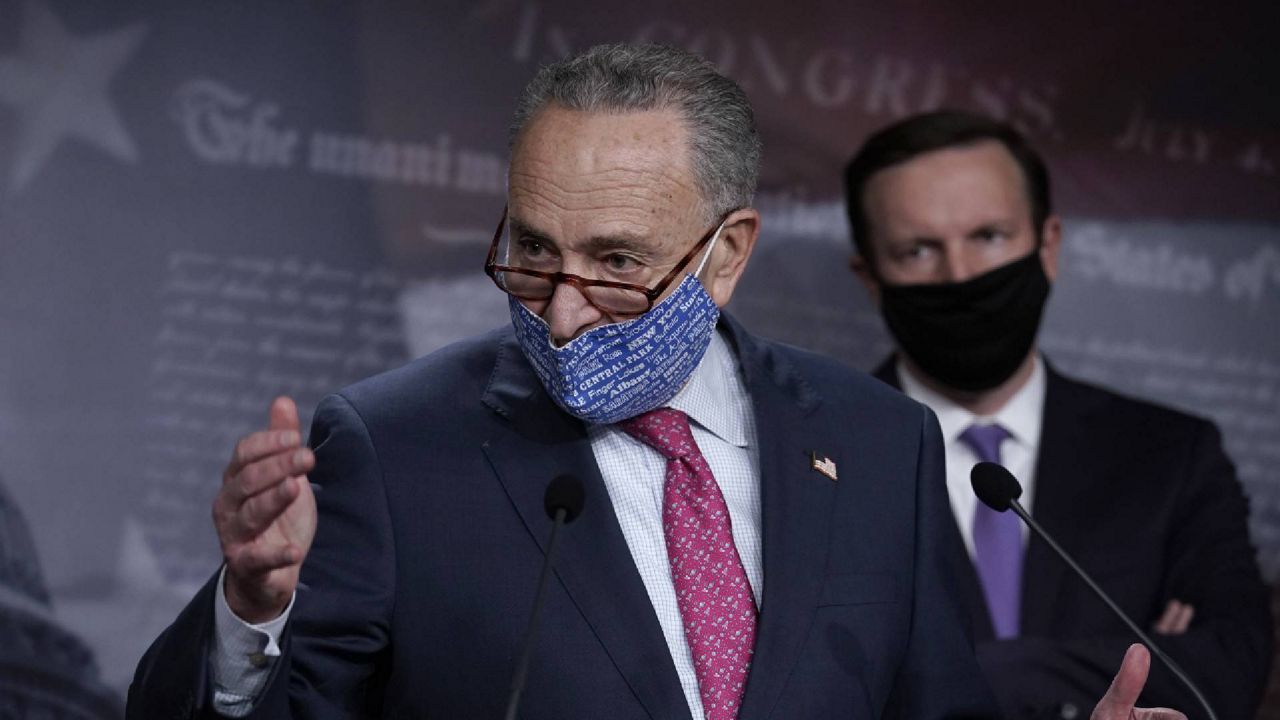LEXINGTON, Ky. – With many forms of assistance provided through the CARES Act and other relief packages expiring in December, Kentuckians will need more federal aid before the new year.
What You Need To Know
- More than 100,000 people could lose unemployment benefits
- Student loan debt relief ending
- Rental and utility assistance expiring
- Policy analyst says more aid is critical
As COVID-19 cases surge and economic hardship deepens, several federal and state assistance programs, such as unemployment benefits, rental and utility assistance, eviction moratoriums, and student loan debt relief are set to expire, which could affect hundreds of thousands of residents across the Commonwealth.
Jessica Klein, a policy associate at the Kentucky Center for Economic Policy, said the expiration of these programs will affect Kentuckians already struggling to make ends meet, and providing additional relief could prevent “substantial harm” to residents and keep the state’s economy from weakening further.
More than 100,000 Kentuckians will lose unemployment benefits at a time when the state’s unemployment rate is at an historical high level, economic recovery is slowing down, and low-wage jobs are far below pre-pandemic levels, Klein said.
“October data shows 30% of Kentuckians are struggling to meet basic needs like food, heat, or rent,” she said. “Despite that, unemployment benefits are ending for many thousands of Kentuckians.”
There are several categories of laid-off workers who will lose benefits at the end of the year, such as those that are self-employed, gig workers, independent contractors, and others not eligible for traditional unemployment benefits that have received Pandemic Unemployment Assistance (PUA) during this crisis.
“As of the most recent data, 50,201 Kentucky jobless workers were receiving PUA benefits,” Klein said. “Workers will also lose benefits from weeks of eligibility being cut short.”
Kentucky provides up to 26 weeks of state unemployment benefits, the federal government has added up to 13 additional weeks through the Pandemic Emergency Unemployment Compensation (PEUC), which expires Dec. 26, and Kentucky is temporarily providing up to 13 more weeks in Extended Benefits (EB) for a total of up to 52 weeks.
“There are currently 21,039 Kentuckians receiving PEUC,” Klein said. “In addition, EB is projected to expire before the end of the year, because Kentucky’s trigger for providing such benefits under state law is very hard to reach unless the federal government is paying the full cost.”
The Dec. 26 cutoff of these benefits will leave a combined 87,688 jobless Kentuckians with no wage-replacement, according to an estimate by The Century Foundation. In addition, an estimated 14,239 Kentuckians are likely to exhaust these benefits before the December cutoff.
“Without congressional action in the next month, that means an estimated 101,927 jobless Kentuckians will have no benefits in the midst of spiking COVID-19 cases and a continued weak economy,” Klein said. “Along with losing benefits entirely, unemployed workers have already seen their benefits decrease substantially. The extra $600 a week in emergency supplemental benefits expired at the end of July. To mitigate some of the economic hardship caused by widespread job loss, Kentucky opted to provide $400 a week in extra unemployment benefits through the Lost Wages Assistance (LWA) program. However, some laid-off workers did not qualify for LWA, and it lasted only six weeks, ending in mid-September. The average Kentucky unemployment benefit without these supplements is only $281 a week.”
State rental and utility assistance are also running out while an estimated 101,000 Kentuckians, or 12% of renters, are not caught up on rent payments, Klein said.
“Kentucky allocated $15 million of CARES Act funds for rental assistance beginning in September; however, with economic hardship
continuing, this Healthy at Home Eviction Relief Fund quickly ran out of funding and stopped accepting new applications on Nov. 5,” she said. “In addition, many Kentuckians are having trouble paying electricity, natural gas, and water bills, a problem that will worsen in cold weather.”
Kentucky issued an order requiring utilities to offer payment plans on balances due at least six months’ duration and waive late fees until December 31. The state also utilized $15 million of CARES Act funds to create the Healthy at Home Utility Relief Fund. However, the state’s Public Service Commission estimated in September that $150 million is needed to fully address the problem of utility bills due just through the end of 2020, Klein said.
Eviction moratoriums will expire on December 31.
“Both the Centers for Disease Control and Prevention (CDC) and Kentucky issued eviction moratoriums,” Klein said. “However, those expiring create a new risk of Kentuckians becoming homeless just as cold weather sets in.”
Also expiring on Dec. 31 is student loan relief, and approximately 575,000 Kentucky borrowers owe $18.7 billion in such loans. In March, borrowers of Department of Education-held federal student loans received a suspension on loan repayments, and interest rates were set to zero percent. This change allowed borrowers to navigate economic hardship caused by the pandemic without the burden of the monthly loan payment.
“In August, the CARES Act established that federal student loan repayments would restart beginning Dec. 31 – an extension from the initial Sept. 30 end date,” Klein said. “Thus, without a further extension from Congress, Kentuckians struggling to make ends meet may have to add a student loan payment to their growing list of overdue bills.”
Paid leave provided by the Families First Coronavirus Response Act expires on Dec. 31 and has enabled Kentuckians without access to paid sick leave through their employer – including 7-out-of-10 of the lowest-paid employees, such as many frontline workers – to stay home when they or their family members are sick.
“The Family and Medical Leave provision has enabled parents whose children’s schools were closed due to COVID-19, who are participating in virtual P-12 education or whose daycares are closed to maintain employment while caretaking,” Klein said. “Without these protections, Kentucky workers have among the most limited access to leave among states.”
Klein said the urgency for relief will worsen in the coming months as COVID-19 cases are surging and colder weather is expected to push people indoors, which will likely increase the spread of COVID-19 and further slow the recovery of the travel, restaurant, and hospitality industries.
“The expiration of federal aid will weaken the economic recovery by reducing much-needed consumer spending,” she said. “Kentucky families will face severe crises as bills come due and benefits expire. Congress must provide additional federal relief to states and expand support that has been so critical to Kentuckians struggling through the pandemic. Congress must reach an agreement before time runs out to provide relief to Kentuckians in dire need of help before January.”








